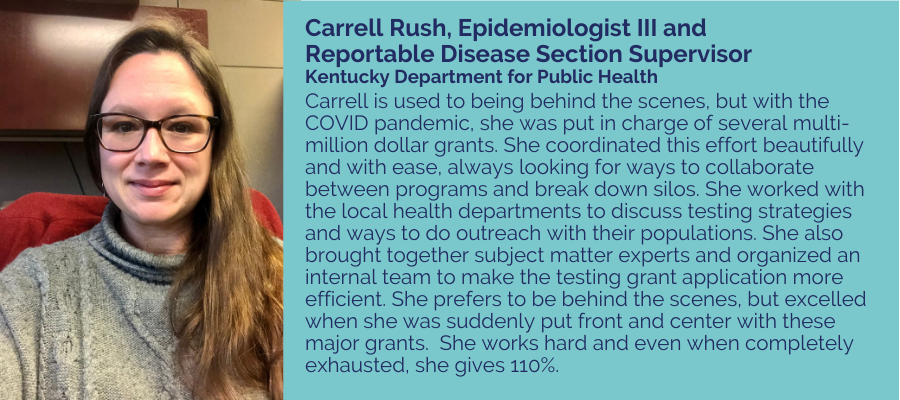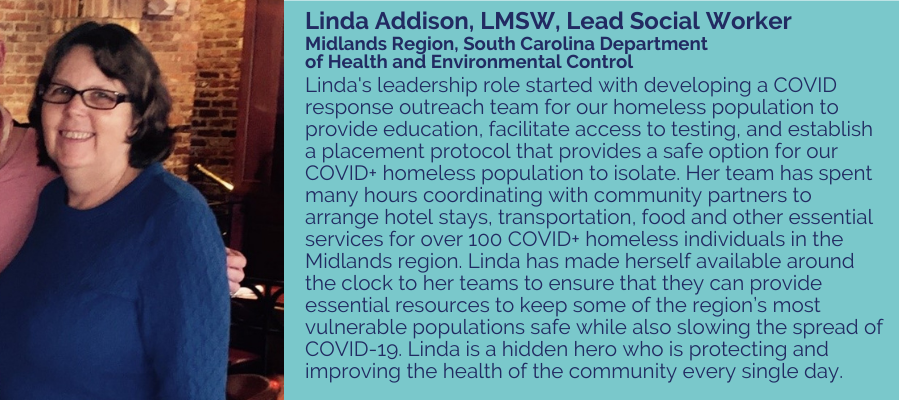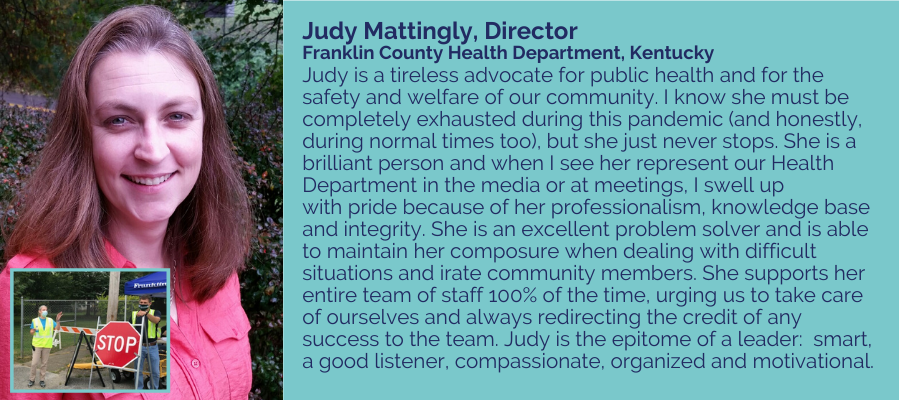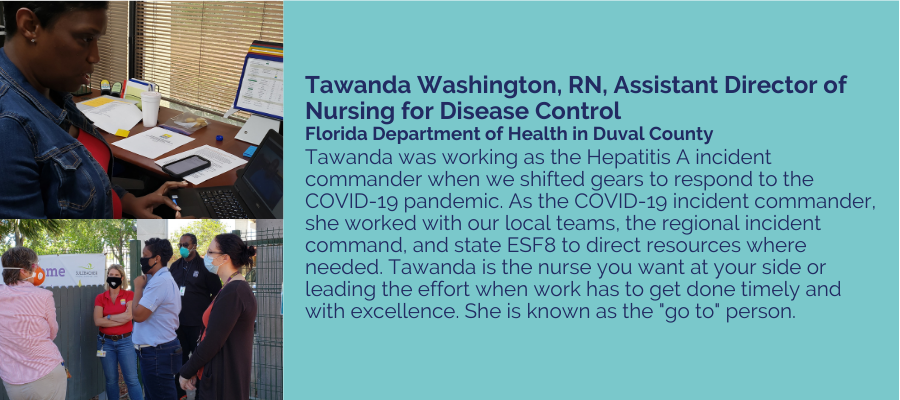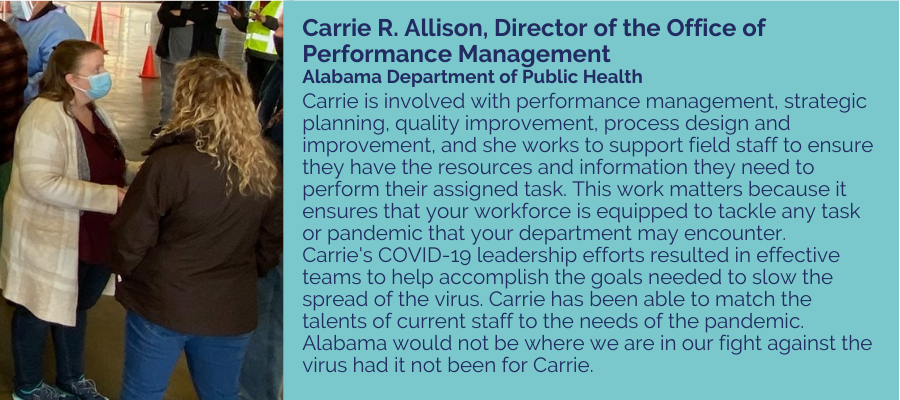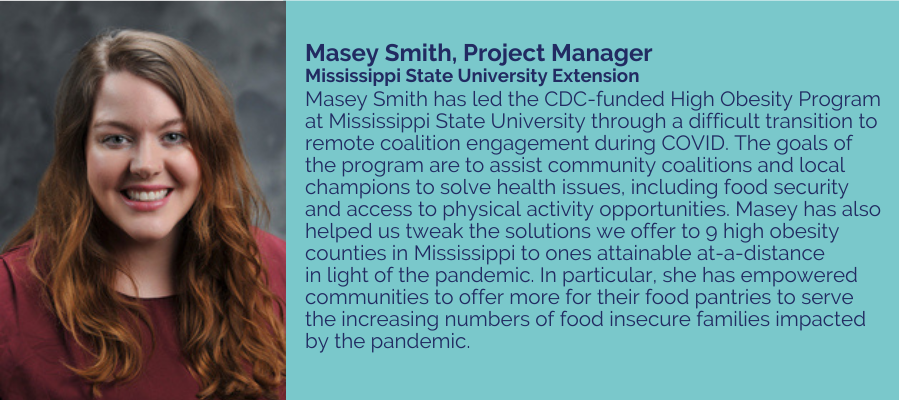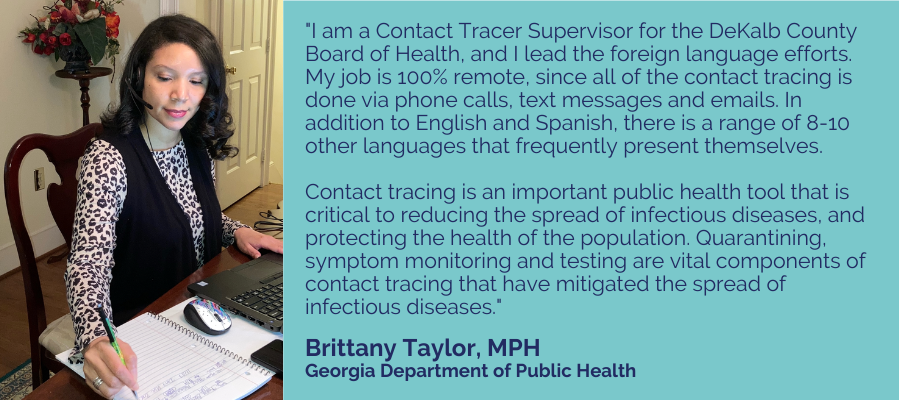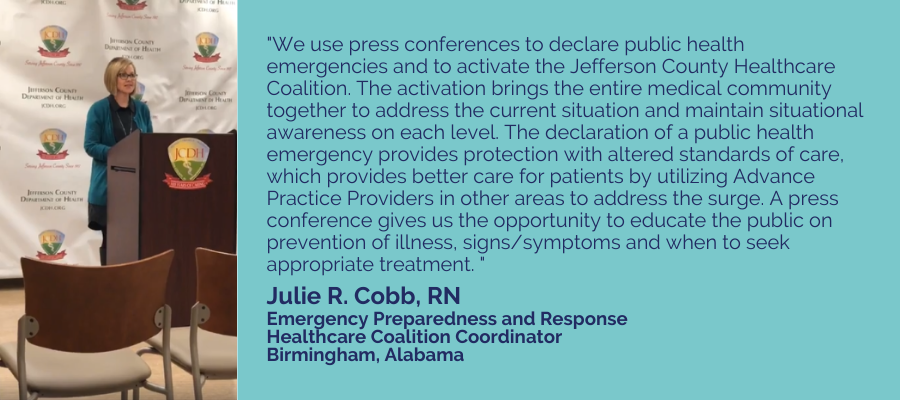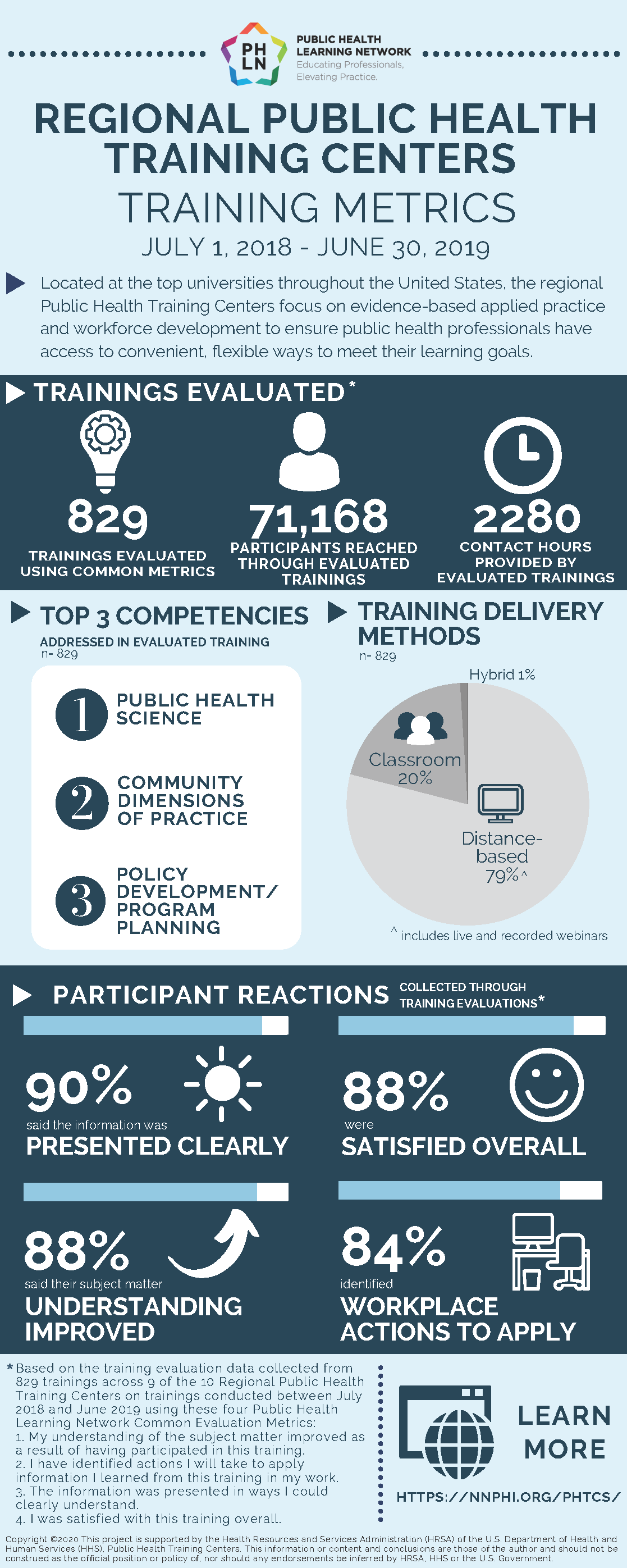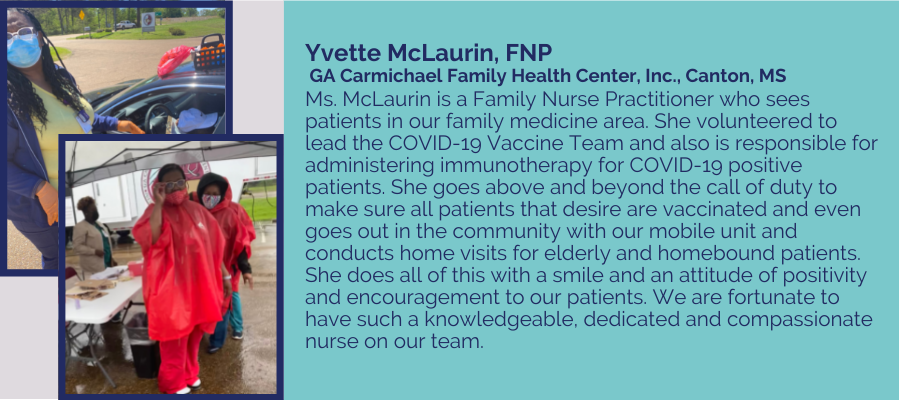
by R-IV PHTC | Dec 15, 2020 | Archive, News
The COVID-19 pandemic has heightened both awareness and scrutiny of the field of public health. Public health professionals have been tasked with responding to the virus in a highly politically charged environment, while also continuing to provide regular programs and services in the challenging circumstances of a pandemic. As a county health department Community Coalition Coordinator explained:
Our health department is handling all things COVID for the county—testing; providing guidance to schools, businesses, employers, agencies, health care providers and the public; investigating and enforcing of state regulations; contact tracing; providing lab results to EVERY single person who takes a COVID test; arranging and providing a multiplicity of testing events that change weekly to meet the current need; and monitoring and assisting people placed in quarantine/isolation to make certain they have what they need and do not violate the order. We also provide shelter and housing and food for people who have no safe place to quarantine or isolate. As employees of the health department we are considered first responders and throughout this crisis are constantly being pulled away from our regular work. I have so much work to do and so very little time. Just because COVID-19 came to town does not mean all of the other health problems went away.
In this new photo blog, Portraits of Public Health, the Region IV Public Health Training Center seeks to highlight and appreciate the folks who have been and continue to do the hard work of public health. To nominate a public health professional to be included, please use this form. Priority will be given to nominees from Region IV.

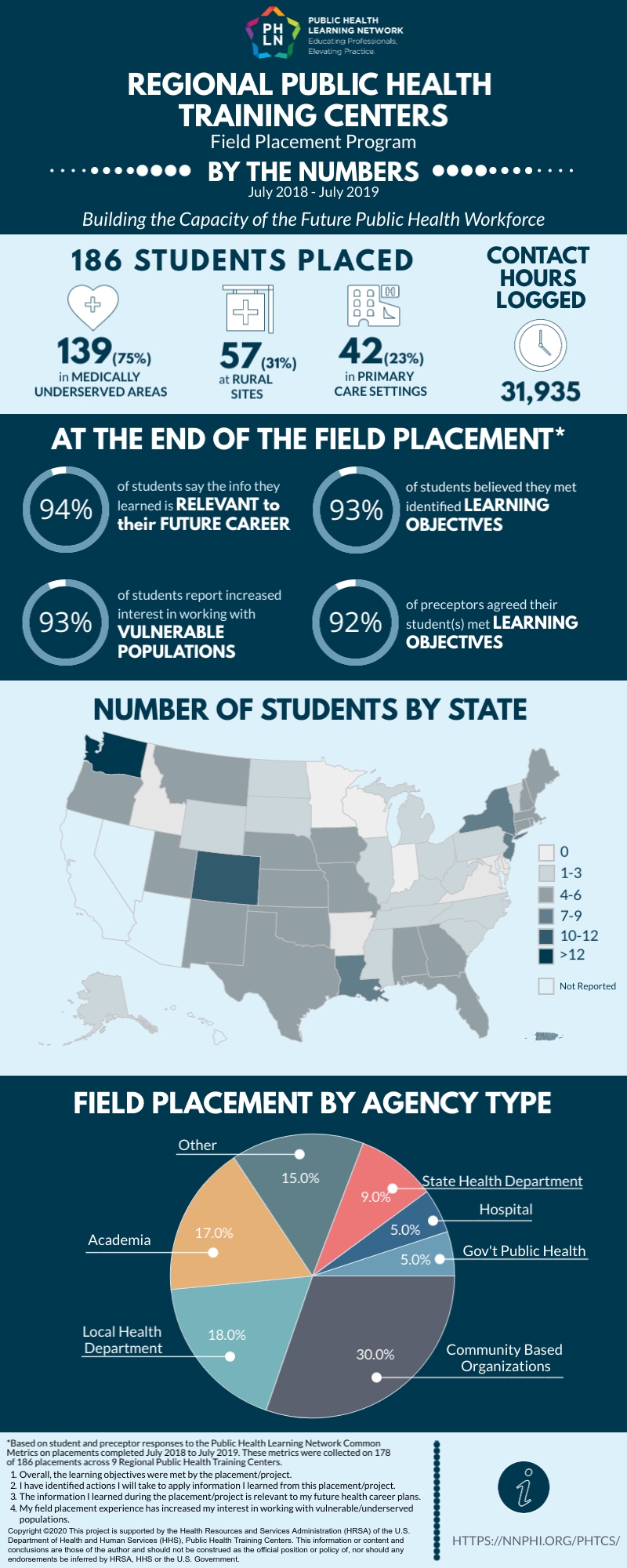
by R-IV PHTC | Aug 26, 2020 | Archive, News
When you participate in a training with the Region IV Public Health Training Center, you become a key part of a national network (the Public Health Learning Network, or PHLN) of ten regional Public Health Training Centers, each funded by the Health Resources and Services Administration to strengthen the public health workforce through education and training.
The PHLN is committed to measuring and communicating the influence of our programming. Two new infographics (below) highlight the collective impact and value of the PHTCs activities at a glance. The compiled data highlight the tremendous effort of the PHTCs in designing trainings that clearly communicate relevant public health information in such a way that participants are not only satisfied with the training, but are also able to learn from the trainings and identify actions they can take in their workplace. Likewise, across all regional field placements, the strength and impact of the PHTC field placement program is evident.

by R-IV PHTC | Jun 8, 2020 | Archive, News
Applications are no longer being accepted for the 2020-2021 cohort.
Are you an emerging leader at a health department or tribal health organization?
Program Overview
The Region IV Public Health Training Center has partnered with the J.W. Fanning Institute for Leadership Development at the University of Georgia to offer the Region IV Public Health Leadership Institute (PHLI). The PHLI provides training for individuals from the eight states that comprise HHS Region IV (Alabama, Florida, Georgia, Kentucky, Mississippi, North Carolina, South Carolina, Tennessee). There is no fee to participate.
The PHLI is an 8-month experience providing 40 contact hours of interaction. The Institute consists of a virtual orientation; a virtual retreat November 2-6, 2020; and 6 virtual sessions, lasting 1½ hours each. In addition to these sessions, participants will be asked to complete approximately 2 hours of intersession work between the virtual sessions.
Who Should Apply
Emerging leaders who:
- Work in governmental state, local, or tribal public health departments or tribal health organizations
- Work in one of the following states: Alabama, Florida, Georgia, Kentucky, Mississippi, North Carolina, South Carolina Tennessee
- Manage programs, supervise staff and/or demonstrate leadership potential
- Work with underserved populations and/or are from under-resourced health departments
Program Learning Objectives
By the end of the Institute, participants will be able to:
- Identify personal leadership strengths
- Address a leadership challenge through a self-directed adaptive approach
- Engage in peer consulting with Region IV colleagues
- Apply leadership competencies in the context of public health

by R-IV PHTC | May 4, 2020 | Archive, News
In response to the 2020 pandemic, The Region IV Public Health Training Center’s Public Health Practice Academy skills-based workshops will now be offered online only, until further notice. Space in these no-cost workshops is very limited (~25 participants per class) and priority enrollment is for staff of local, state and tribal health departments in Region IV (AL, FL, GA, KY, MS, NC, SC, TN). Only register if you are confident that you can participate.
These online Public Health Practice Academy workshops are not webinars. They are interactive, and learners are expected to actively participate and share their audio and video. Each participant will need a computer with webcam, microphone, speakers and internet access.
Topics include data analytics, persuasive communications, practical evaluation, program planning, conflict management, holistic leadership, health equity, human resource management and strengths-based leadership.

by R-IV PHTC | Mar 20, 2020 | Archive, News
The nation’s Regional Public Health Training Centers serve the governmental public health workforce, a group of professionals who, under normal times, are generally overstretched and under-resourced. As the U.S. confronts the 2020 COVID-19 pandemic, these individuals deserve extra support of all kinds: emotional, instrumental and informational. The Region IV Public Health Training Center, with its network of almost 9,000 public health professionals, is uniquely poised to facilitate supportive connections between those on the frontlines of COVID-19.
Who is eligible to participate?
The Communities of Support initiative is designed for staff of local, tribal and state health departments. Priority will be given to those working in Region IV: Alabama, Florida, Georgia, Kentucky, Mississippi, North Carolina, South Carolina, and Tennessee. Others will be considered if resources allow.
What will Community of Support participation look like?
This will largely be determined by group members. Communities can stick with group email threads, or switch to another mode of communication (text, Zoom, WhatsApp, Slack, etc.). These communications will be informal and private to the community members. All community members are expected to participate in some capacity and should participate as much as they like or can.
Who will be in my Community of Support?
Region IV Public Health Training Center staff will create groups of 2-8 public health professionals. Members will be matched based on the preferences they indicate during the registration process, to the greatest extent possible. Participants will have the opportunity to indicate if they prefer to be matched with others within or outside of their discipline, geographic location and agency type.
When will Communities of Support begin and end?
Participants will be recruited beginning March 23, 2020. Communities will be formed starting March 30, 2020. Communities may be continue to be created after that date if staff capacity permits. For the time being, this iniative has an open end date.
What support will the Region IV Public Health Training Center provide?
Each group will be assigned a technical assistance (TA) contact from the Region IV Public Health Training Center. The TA contact will start a group email thread for each Community of Support. The TA contact will provide 1-2 weekly prompts (introductions, discussion questions, resources, self-care tips, etc.) to get and keep community conversations going. The TA contact will check in with participants periodically to see how their experience has been and will also be available if someone needs to be reassigned or otherwise needs technical assistance.
If you have any questions prior to registering, please contact hilary.merlin@emory.edu.
Community of Support members can help one another get through this current challenge.
- Coach
- Learn
- Mentor
- Share
- Support
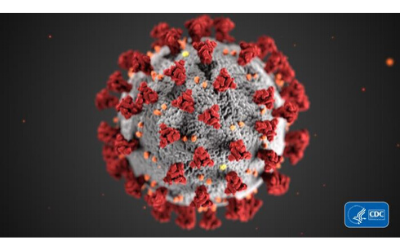
by R-IV PHTC | Mar 5, 2020 | Archive, News
CENTERS FOR DISEASE CONTROL AND PREVENTION (CDC)
STATE-SPECIFIC INFORMATION FROM HEALTH DEPARTMENTS IN HHS REGION IV
RELATED TRAININGS FROM THE REGION IV PUBLIC HEALTH TRAINING CENTER

by R-IV PHTC | Oct 14, 2019 | Archive, News
The Region IV Public Health Training Center’s Public Health Practice Academy is a collection of in-person, skills-based workshops for both new and seasoned public health professionals. We offer a limited number of these classes at local, state and tribal health departments in Region IV (AL, FL, GA, KY, MS, NC, SC, TN). While we are not able to fulfill every request we receive, we would like to hear from you if you are interested in bringing a workshop to your health department. Contact us for more information.
The most recent additions to the Public Health Practice Academy series include:
- 5 Voices of Leadership: Transforming Team Communication
- Data Analytics for Public Health
- Managing Change in Public Health
- Persuasive Communication in Public Health: Influencing Patients, Partners and the Public
- Seeking Health Equity: Understanding and Taking Action on the Root Causes of Health Disparities
by R-IV PHTC | May 13, 2019 | Archive, News
The Region IV Public Health Training Center has partnered with the J.W. Fanning Institute for Leadership Development at the University of Georgia to offer the Region IV Public Health Leadership Institute (PHLI). The PHLI provides training for individuals from across the eight states that comprise HHS Region IV (Alabama, Florida, Georgia, Kentucky, Mississippi, North Carolina, South Carolina, Tennessee). There is no fee to participate.
The PHLI is an 8-month experience providing 40 contact hours of interaction. The Institute consists of a virtual orientation, one in-person 3-day retreat, and 6 virtual sessions, lasting 1½ hours each. In addition to these sessions, participants will be asked to complete approximately 2 hours of intersession work between the virtual sessions.
Applicant Criteria
- Employed by state, local or tribal public health departments/tribal health organizations
- Work in one of the following states: Alabama, Florida, Georgia, Kentucky, Mississippi, North Carolina, South Carolina Tennessee
- Manage programs, supervise staff and/or demonstrate leadership potential
Program Learning Objectives
By the end of the Institute, participants will be able to:
- Identify personal leadership strengths
- Address a leadership challenge through a self-directed adaptive approach
- Engage in peer consulting with Region IV colleagues
- Apply leadership competencies in the context of public health
by R-IV PHTC | Dec 18, 2018 | Archive, News
Are you ready to give your professional development a jump start in 2019? These customizable, three-part worksheets can help you identify and prioritize your learning needs and then craft a plan for meeting them. They are based on the de Beaumont Strategic Skills for the Governmental Public Health Workforce as well as the The Council on Linkages Core Competencies for Public Health Professionals.
Select the plan below that matches your professional tier, download the editable document, and get started!
Professional Development Plan for Tier One Public Health Professionals (Front Line Staff/Entry Level) >>
Professional Development Plan for Tier Two Public Health Professionals (Program Management/Supervisory Level) >>
Professional Development Plan for Tier Three Public Health Professionals (Senior Management/Executive Level) >>
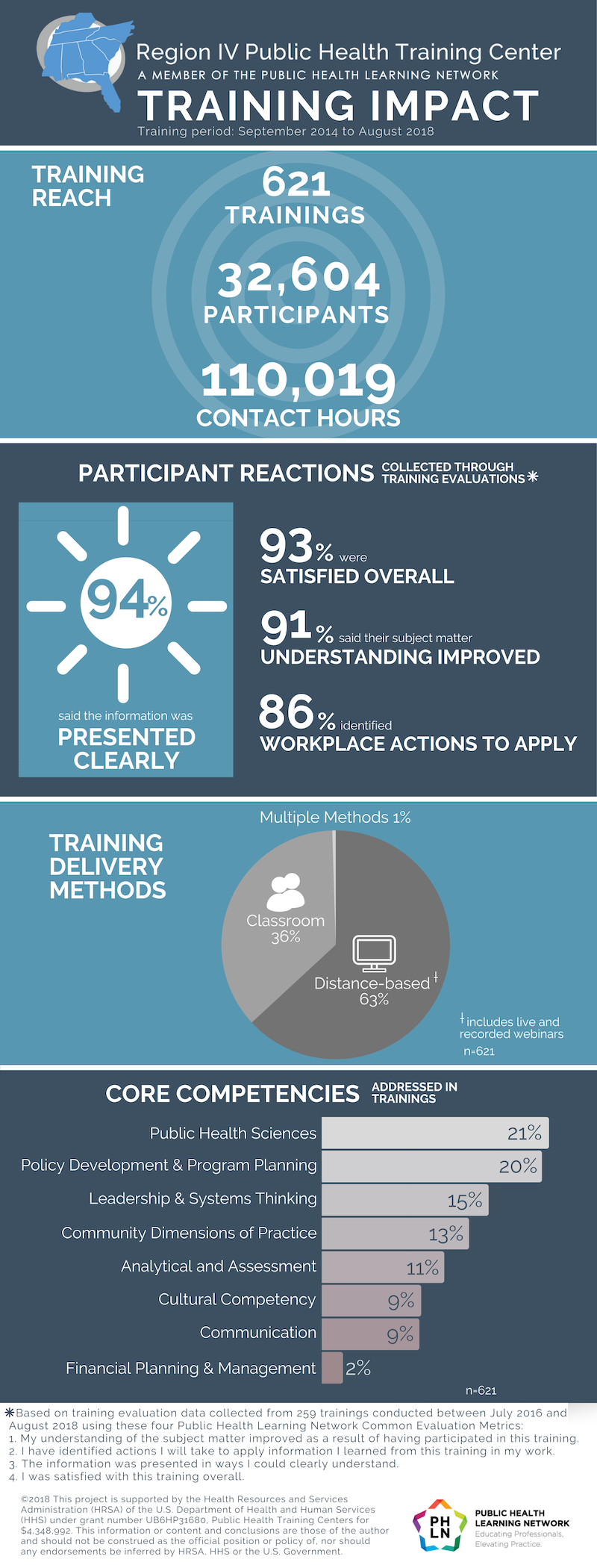
by R-IV PHTC | Oct 23, 2018 | Archive, News
The Region IV Public Health Training Center is committed to measuring the impact of our training programs on the public health workforce. The infographic below provides an overview of the reach and evaluation findings from trainings held between September 2014 and August 2018.

by R-IV PHTC | Sep 14, 2018 | Archive, News
These trainings on hurricanes and their aftermath have been produced by the Region IV Public Health Training Center or other members of the Public Health Learning Network.
These trainings on hurricanes and their aftermath have been produced by other organizations.
A recommended list of Resources for Public Health Response to Hurricanes and Their Aftermath is also available.
by R-IV PHTC | Sep 14, 2018 | Archive, News, Uncategorized
As the Atlantic hurricane season intensifies, public health agencies may be involved in critical preparedness and recovery efforts. The Region IV Public Health Training Center recommends these related resources.
From the Centers for Disease Control and Prevention—Natural Disasters and Severe Weather, which includes
From the HHS Office of the Assistant Secretary for Preparedness and Response—Hurricane Florence 2018, which includes
- Preparedness and Planning
- During a Hurricane
- Following a Hurricane
- Resources for Response Workers
From the National Association of County and City Health Officials—Hurricane Season Ready: Preparedness and Response Resources, which includes
- Local Health Departments’ Role in in Hurricane and Flooding Response and Recovery
- Post-Hurricane and Flooding
- Vector-Control
- Mental/Behavioral Health
- Food and Water Safety
- Risk and Emergency Communications
- Volunteering and Donations
- Federal Resources and Guidance
A list of hurricane-related trainings from Region IV Public Health Training Center, the Public Health Learning Network and other organizations is also available.

by R-IV PHTC | Jul 2, 2018 | Archive, Featured Post, News

Moose Alperin, Principal Investigator/Project Director
The Region IV Public Health Training Center (PHTC) has been awarded a $4.3 million grant from the Health Resources and Services Administration (HRSA), a U.S. Department of Health and Human Services (HHS) agency. These funds will be used over the next four years to improve the ability of the public health workforce to meet national, state, and local needs under the direction of Principal Investigator Melissa (Moose) Alperin, EdD, MPH, MCHES.
The new round of funding begins in July 2018 and calls for an increased focus on training in three primary skill areas: systems thinking, change management and persuasive communication. These are three of the strategic skills identified by the National Consortium for Public Health Workforce Development and the de Beaumont Foundation in the report “Building Skills for a More Strategic Public Health Workforce: A Call to Action.” Additionally, trainings will be offered based on state needs and priority health concerns, including mental health, opioid use and childhood obesity. The new funding also increases emphasis on student field placements, which aim to increase the number of skilled public health professionals working in rural and/or underserved communities.
The Rollins School of Public Health (RSPH) at Emory University has been funded by HRSA as a public health training center since 2010 — first, as the Emory PHTC and then, in 2014 as the Region IV PHTC. The Region IV PHTC, headquartered at the RSPH, includes seven community-based training centers (CBTs) at partnering institutions (Alabama Public Health Training Network, Alabama Department of Public Health; Florida Agriculture and Mechanical University; University of Louisville; Mississippi Public Health Institute; University of North Carolina Wilmington; Medical University of South Carolina; and East Tennessee State University) and three technical assistance partners (University of Alabama at Birmingham, University of Georgia, and the National Network of Public Health Institutes). Together the Region IV PHTC network serves eight southeastern states: Alabama, Florida, Georgia, Kentucky, Mississippi, North Carolina, South Carolina and Tennessee. Nine additional Public Health Training Centers also received funded by HRSA to serve other HHS regions across the U.S.
The Region IV PHTC Learning Community
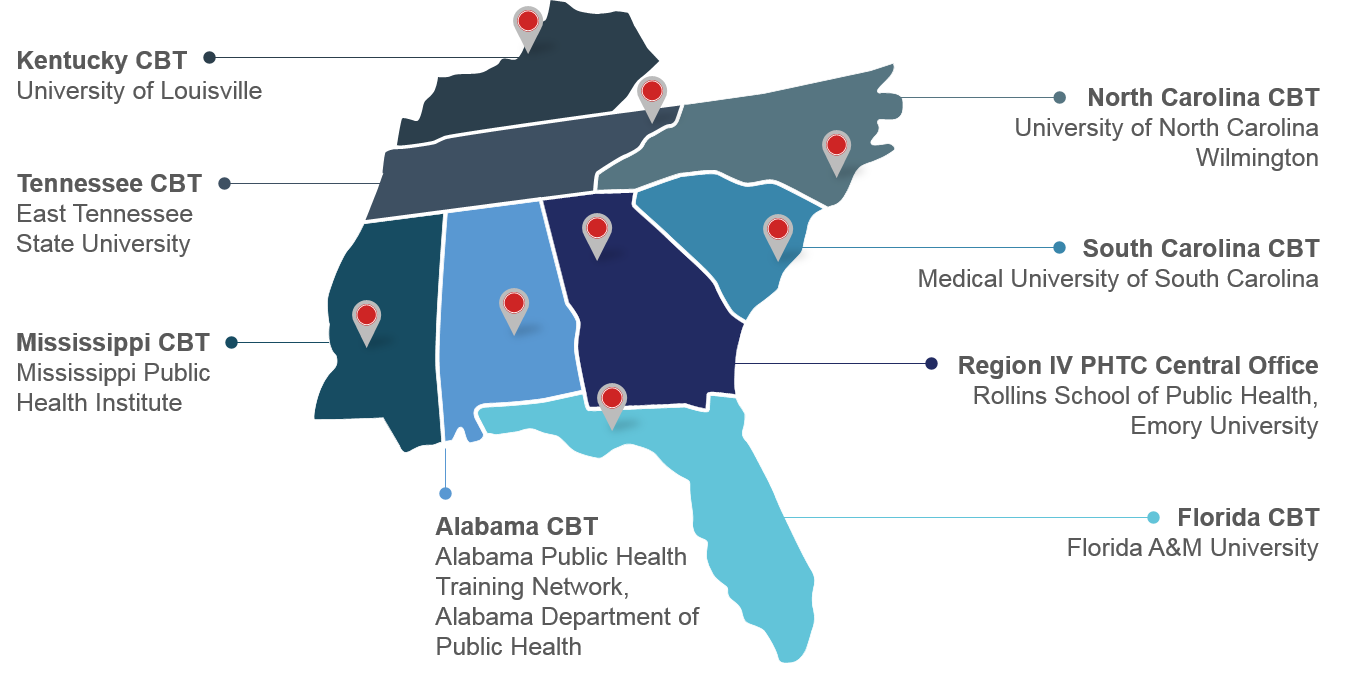
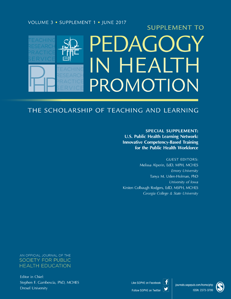
by R-IV PHTC | Aug 1, 2017 | Archive, News
 The June 2017 supplement to Pedagogy in Health Promotion: The Scholarship of Teaching and Learning highlights the innovative activities of the 10 regional Public Health Training Centers, 40 local performance sites and the National Coordinating Center that comprise the Public Health Learning Network (PHLN). The supplement, titled “U.S. Public Health Learning Network: Innovative Competency-Based Training for the Public Health Workforce,” contains 12 articles, three commentaries, and a guest editorial by Dr. Karen B. DeSalvo, former Acting HHS Assistant Secretary for Health, about the role of the PHLN in implementing the Public Health 3.0 framework. Specific activities described in the supplement include training needs assessment, workforce development training, technical assistance for the the public health workforce, and field placements.
The June 2017 supplement to Pedagogy in Health Promotion: The Scholarship of Teaching and Learning highlights the innovative activities of the 10 regional Public Health Training Centers, 40 local performance sites and the National Coordinating Center that comprise the Public Health Learning Network (PHLN). The supplement, titled “U.S. Public Health Learning Network: Innovative Competency-Based Training for the Public Health Workforce,” contains 12 articles, three commentaries, and a guest editorial by Dr. Karen B. DeSalvo, former Acting HHS Assistant Secretary for Health, about the role of the PHLN in implementing the Public Health 3.0 framework. Specific activities described in the supplement include training needs assessment, workforce development training, technical assistance for the the public health workforce, and field placements.
R-IV PHTC Director of Operations Moose Alperin, EdD, MPH, MCHES, served as a guest editor. Pedagogy in Health Promotion is a publication of the Society for Public Health Education. The entire supplement is accessible online at no charge for one year, and some articles are approved for CHES or MCHES continuing education credits.

by R-IV PHTC | Jun 23, 2017 | Archive, News
As a public health professional, you may be wondering if advocacy has a role in your life. The answer is YES! Here’s what you can do.
Understand your professional responsibility. Public health professionals have a duty to use their expertise and influence to advocate for public health. Advocating for policies and programs that improve health is a fundamental function and core competency of public health professionals.
—
Stay informed. Policy and budget proposals are changing every day. Follow the news and these national public health organizations to know when your help is critically needed.
—
Don’t assume all advocacy activities are off limits. Advocacy is taking action to build support for an issue or cause. Many advocacy activities are compatible with employers’ policies, in particular educating policymakers and constituents. Lobbying is a type of advocacy that involves contacting policymakers by phone, email, in-person or otherwise to try to influence their position on specific legislation.
—
Know your agency. Some organizations prohibit employees from lobbying (not advocacy) altogether. Others have a process in place for approving lobbying activities. Check with your organization’s human resources or public affairs department to clarify.
—
Act as a concerned citizen. As a private citizen, you generally are free to contact elected officials on your own time, using your own resources to share your personal views. When acting as an individual, you may use your credentials (MPH, RN, MD, etc.), but not your organizational affiliation. Research suggests that in-person visits and individualized emails/letters are more influential phone calls and form emails. When reaching out about a public health matter, consider contacting your Senator or Representative’s Health Legislative Assistant.
FIND YOUR SENATOR FIND YOUR REPRESENTATIVE

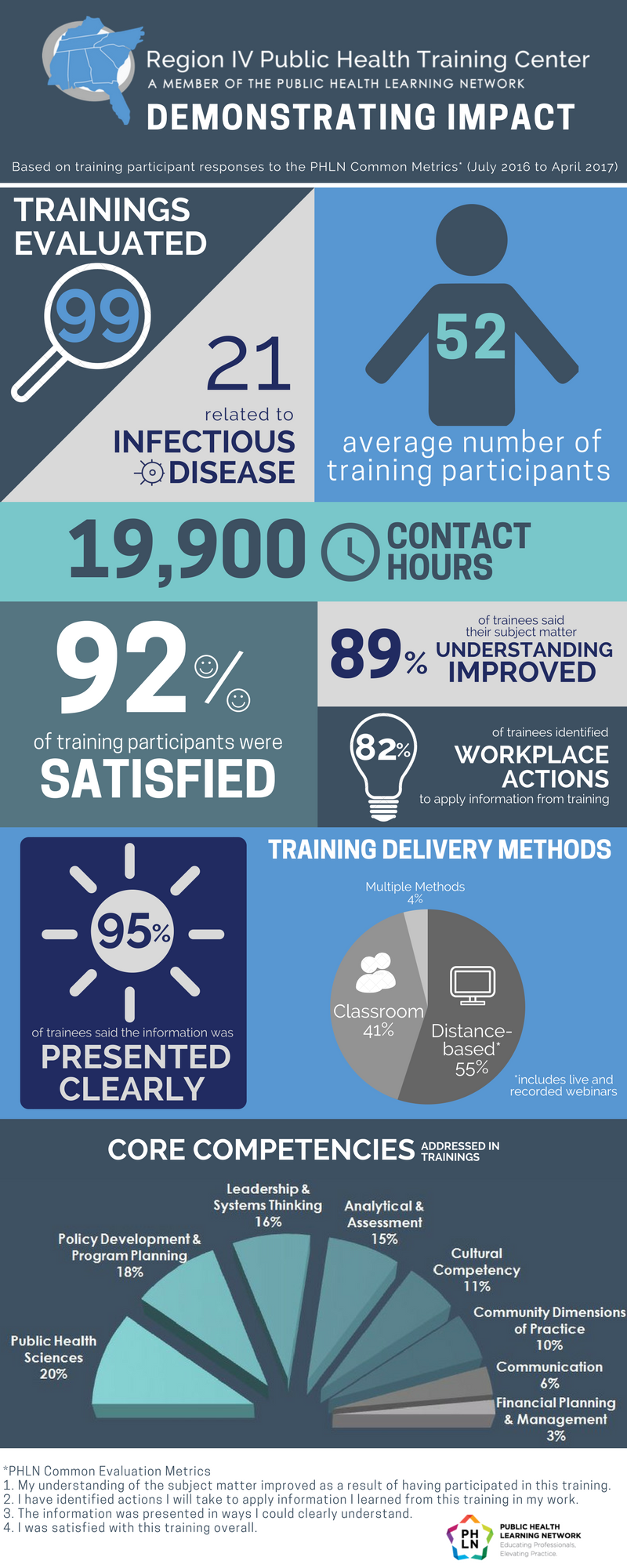
by R-IV PHTC | May 25, 2017 | Archive, Featured Post, News
The Region IV Public Health Training Center is committed to measuring the impact of our training programs on the public health workforce. The infographic below provides an overview of the evaluation findings from our most recent trainings (July 2016-April 2017).

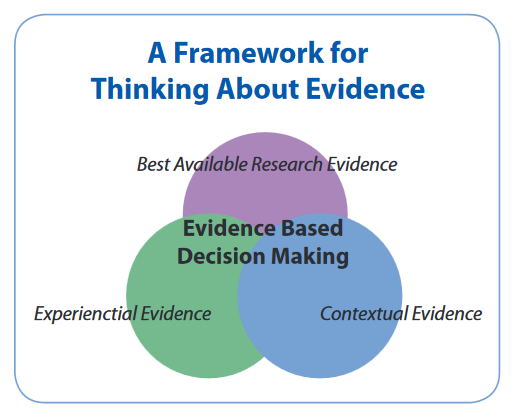
by R-IV PHTC | Feb 22, 2017 | Archive, News
Evidence-based practices improve health outcomes, maximize limited resources, and enhance workforce productivity.

This image, from CDC’s Understanding Evidence, highlights three distinct sources of evidence that influence decision making in public health. While research evidence is extremely important and should not be overlooked, it is not the only kind.
When public health programs lack evidence of effectiveness, we may use other explanations to defend our work: We’ve always done it that way or People love it. However, in order to protect the integrity of the public health profession, we should uphold science and evidence-based public health practice. Trained public health practitioners rely on the best available knowledge about what works–and what doesn’t–when making decisions about public health programs and policies. They rely on scientific research to inform their priorities and select strategies with demonstrated benefits.
Ready to learn more? Explore the resources below and join our March 6, 2017 webinar.
Selected Resources for Finding Evidence-Based Programs
For a more comprehensive list, click here.
by R-IV PHTC | Apr 1, 2016 | Archive, News
CDC is excited to announce the launch of the newly designed CDC Learning Connection – your source for information on public health training opportunities developed by CDC, CDC partners, and other federal agencies. Visit the new site, access thousands of free courses, and sign up for monthly email updates.
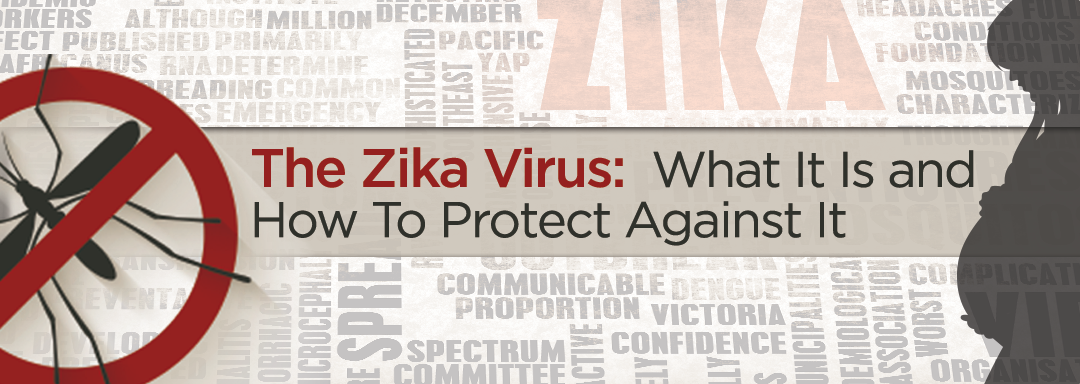
by R-IV PHTC | Mar 15, 2016 | Archive, Featured Post, News
This is a listing of archived training materials for public health professionals on the Zika virus, including recorded webinars and live presentations sponsored by the Region IV Public Health Training Center.
Zika Virus Symposium: Zika: Z to A: What We Know, What We Don’t, and How to Prepare
This event was sponsored on June 10, 2016 by MUSC’s South Carolina Clinical and Translational Research (SCTR) Institute, Johns Hopkins University, South Carolina Department of Health and Environmental Control (DHEC), MUSC Center for Global Health, Johns Hopkins Project Restore and MUSC’s Department of Public Health Sciences.
ASPR TRACIE: Zika Resources at Your Fingertips
This document provides Zika virus disease resources and an overview of public health and healthcare system considerations and implications that are applicable to professionals in those systems, emergency management stakeholders, and other audiences.
The Region IV Public Health Training Center sponsored a webinar, “Protecting the Public from Mosquito-borne Illnesses: Zika” with Beth P. Bell, MD, MPH.
The Region IV Public Health Training Center sponsored a webinar, “The Zika Virus: What It Is and How to Protect Against It” with Cherie Drenzek, DVM, MS, State Epidemiologist, Georgia Department of Public Health.
Zika Virus Challenge 2016
The University of Alabama at Birmingham School of Public Health sponsored the Zika Virus Challenge 2016 Training on February 15, 2016. This recorded video of a live presentation will provide general background on the Zika virus and mosquito vectors and discuss responses to similar outbreaks.
U.S. DEPARTMENT OF HEALTH AND HUMAN SERVICES ZIKA VIRUS HEALTH INFORMATION RESOURCES
by R-IV PHTC | Feb 8, 2016 | Archive, News
Protecting Americans from Infectious Diseases
The Outbreaks: Protecting Americans from Infectious Diseases report found that more than half (28) of states scored a five or lower out of 10 key indicators related to preventing, detecting, diagnosing and responding to outbreaks. Five states—Delaware, Kentucky, Maine, New York and Virginia—tied for the top score, achieving eight out of 10 indicators. Seven states—Idaho, Kansas, Michigan, Ohio, Oklahoma, Oregon and Utah—tied for the lowest score at three out of 10.
The report, from TFAH and the Robert Wood Johnson Foundation (RWJF), concluded that the United States must redouble efforts to better protect the country from new infectious disease threats, such as MERS-CoV and antibiotic-resistant superbugs, and resurging illnesses like whooping cough, tuberculosis and gonorrhea.
READ THE FULL ARTICLE AT TRUST FOR AMERICA’S HEALTH»
Related Infectious Disease Trainings
[ecs-list-events cat=’infectious-disease-infection-prevention’ eventdetails=’false’ limit=’10’]


